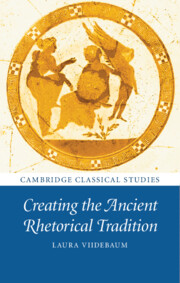Part of Cambridge Classical Studies
- Date Published: November 2021
- availability: Available
- format: Paperback
- isbn: 9781108812580
This book explores the history of rhetorical thought and examines the gradual association of different aspects of rhetorical theory with two outstanding fourth-century BCE writers: Lysias and Isocrates. It highlights the parallel development of the rhetorical tradition that became understood, on the one hand, as a domain of style and persuasive speech, associated with the figure of Lysias, and, on the other, as a kind of philosophical enterprise which makes significant demands on moral and political education in antiquity, epitomized in the work of Isocrates. There are two pivotal moments in which the two rhetoricians were pitted against each other as representatives of different modes of cultural discourse: Athens in the fourth century BCE, as memorably portrayed in Plato's Phaedrus, and Rome in the first century BCE when Dionysius of Halicarnassus proposes to create from the united Lysianic and Isocratean rhetoric the foundation for the ancient rhetorical tradition. This title is available as Open Access on Cambridge Core.
Part I. Lysias, Isocrates and Plato: Ancient Rhetoric in Athens:
1. Lysias in Athens
2. Reflections on Lysias and Lysianic rhetoric in the fourth century BCE
3. Isocrates and his work on rhetoric and philosophy
4. Isocrates on Socrates
5. Contemporary reflections on Isocrates and his role in rhetoric and philosophy
Part II. Creating the Ancient Rhetorical Tradition: Dionysius of Halicarnassus in Rome:
6. From Athens to Rome: Lysias, Isocrates, and the transmission of Greek rhetoric and philosophy
7. Dionysius of Halicarnassus on Lysias, rhetoric and style
8. Isocrates and philosophy in Dionysius of Halicarnassus' rhetorical writings.






No comments:
Post a Comment